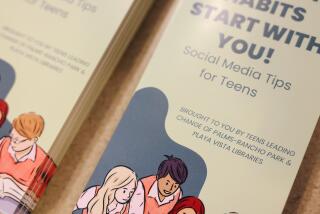Dove spearheads ‘Self Esteem Project’ to salute and honor real girls
- Share via
Female empowerment has been a major theme for 2017, and Dove plans to keep that momentum rolling well into the New Year.
The Unilever-owned personal-care brand is planning a new outdoor, print and social campaign in the U.K. that aims to champion body confidence. Titled “Self Esteem Project,” the campaign aims to flip the usual marketing message of “new year, new you” on its head with a series of raw, unretouched images that feature young girls with zero modeling background.
The idea for the campaign came from company research that showed the phrase “new you” is shared more than 13,000 times on Twitter in the month of January. While the message may appear to be positive, Dove believes it’s likely to spark further body confidence issues and add to the pressure on young girls, many of whom already have low body images.
“The start of a new year often comes with a tidal wave of messages and pressures for girls and women to change and discipline their bodies to meet unrealistic resolutions and appearance ideals,” said Phillippa Diedrichs, associate professor from the Centre for Appearance Research at the University of West England Bristol, who worked with Dove on the project.
“During times like this, it is especially important that we support girls to resist these pressures and to focus on what their bodies and minds allow them to do, rather than what they look like.”
According to the research, 61% of girls between the ages of 10 and 17 in the U.K. lack confidence and body esteem, while nine in 10 girls with low body esteem are likely to put their health at risk trying to conform to what they believe is expected of them.
Dove is spending 1.5 million pounds on the campaign, which also offers free advice and support around the issues of self-esteem on the Dove web site.
The company said it aims to reach up to 40 million people by 2020 through the initiative.
Sophie Galvani, Dove’s global vice president, said the tools on the web site provide a simple means of “proactive intervention” in the lives of teenage girls, who are likely to be experiencing lower levels of happiness at this stage of their lives.
“The Self Esteem Project’s evidence-based tools, interventions and workshops, which are free to download, are proven to help build positive body confidence in young people, and ultimately help the next generation reach their full potential in life,” Galvani said.
The company has long been a supporter of healthy beauty standards and has released many campaigns that aim to promote female self-esteem. Earlier this year, it re-affirmed its commitment to promoting body positivity and beauty confidence with the publication of the “Real Beauty Pledge,” which highlighted the company’s use of non-professional models and unretouched imagery in its campaigns.
Diedrichs argued that while a bigger social and cultural shift is needed, providing support through such initiatives is essential in altering girls’ mindsets.
“We still have an enormous amount of work to do in helping girls develop the resilience they need to overcome the impact of beauty and appearance pressures,” she said.
The campaign will run throughout January and February in monthly magazines including Good Housekeeping, Woman & Home, Red, Marie Claire, local newspaper supplements, and on outdoors and social platforms such as Facebook.
More to Read
Sign up for Essential California
The most important California stories and recommendations in your inbox every morning.
You may occasionally receive promotional content from the Los Angeles Times.











